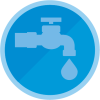eeWORKS: Identifying Effective Climate Change Education Strategies

NAAEE is excited to share the latest eeWORKS installment on the positive outcomes of effective climate change education.
Guided by an expert advisory board, NAAEE is partnering with Stanford University, University of California Davis, and University of Florida to demonstrate the impact and value of EE. We are conducting comprehensive research reviews and producing communications tools for several priority outcome areas to narrow our focus. These key outcome areas were identified based on published literature and key stakeholders' interests, such as educators, environmental organizations, policymakers, and funders. In short, we are substantiating powerful anecdotes from across the field with empirical evidence.
The University of Florida's (UF) analysis of peer-reviewed research revealed that climate change education programs achieve various positive outcomes. Most commonly, programs increase climate knowledge, but they can also impact learners’ level of concern about climate change, problem-solving skills, and behaviors.1 Effective climate change education programs are personally relevant and meaningful, use engaging teaching strategies, encourage deliberative discussion to explore and navigate disagreements and controversial issues, engage participants in the scientific process, address misconceptions, and/or incorporate school or community projects for participants to take action.
UF’s research review suggests that climate change is best taught with effective, well-tested education methods of experiential activities around relevant and meaningful climate change impacts. Effective climate change education can also help build problem-solving skills by engaging learners in classroom and community projects to increase awareness. Finally, students learn more if they are prompted to assess their own ideas, talk through the evidence, and explain their thinking. Understanding and applying some or all of these strategies for climate change education can help educators improve their practice and deepen their participants’ learning.
To learn more, dive into the research and our communication tools!
1 Monroe, M., Plate, R., Oxarart, A., Bowers, A., and Chaves, W. (2017). Identifying effective climate change education strategies: A systematic review of the research. Environmental Education Research, https://doi.org/10.1080/13504622.2017.1360842. Articles included in the systematic search were limited to those written in English to facilitate analysis.
NAAEE would like to thank Martha Monroe and the UF research team for their partnership and contribution to the eeWORKS program, which aims to initiate widespread communication about the value of EE.



